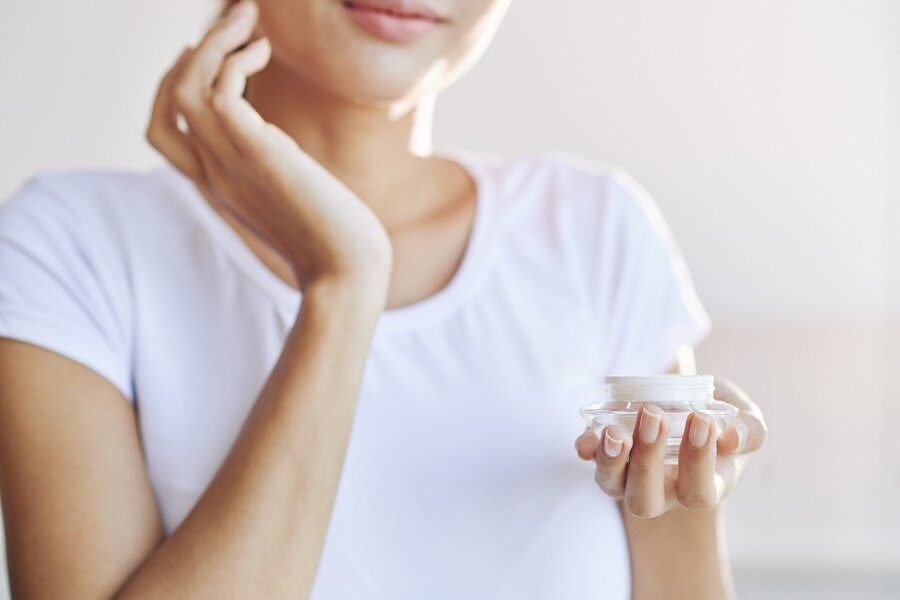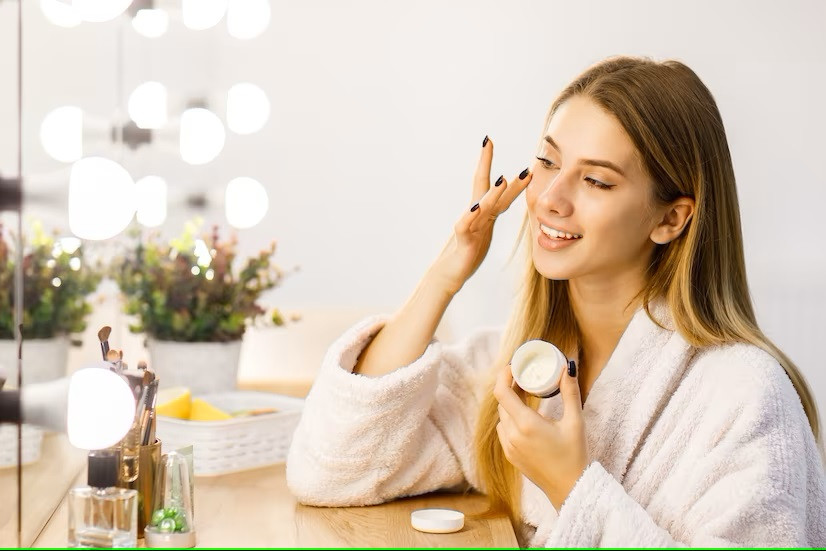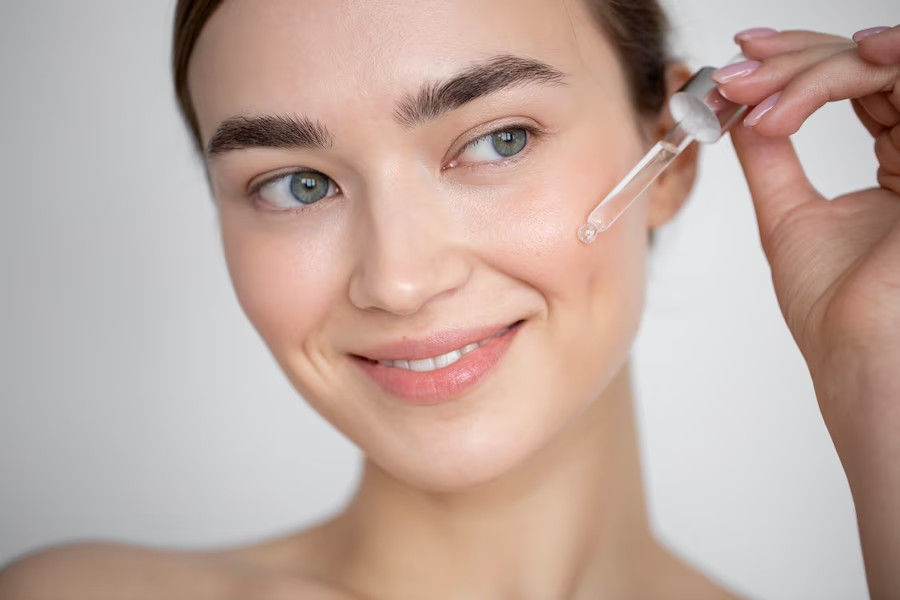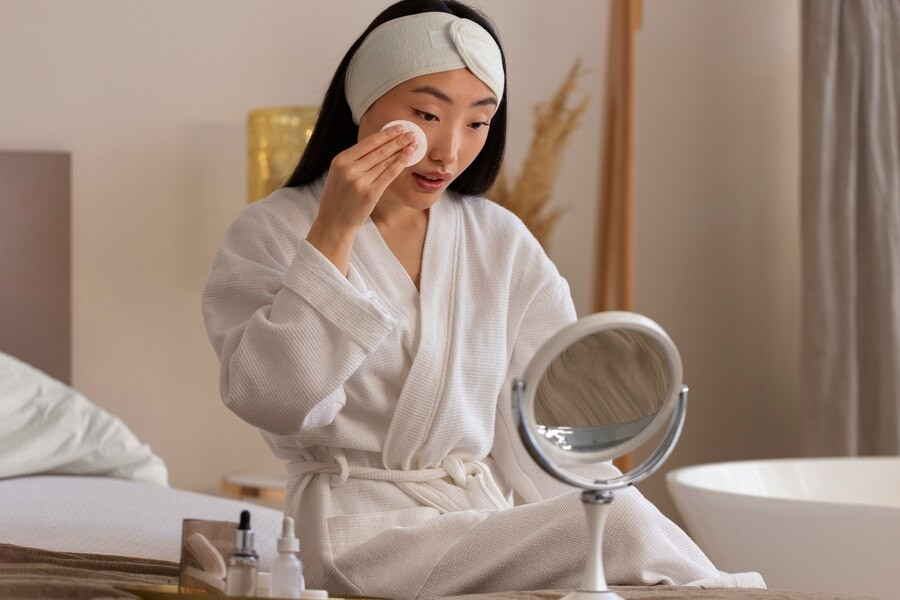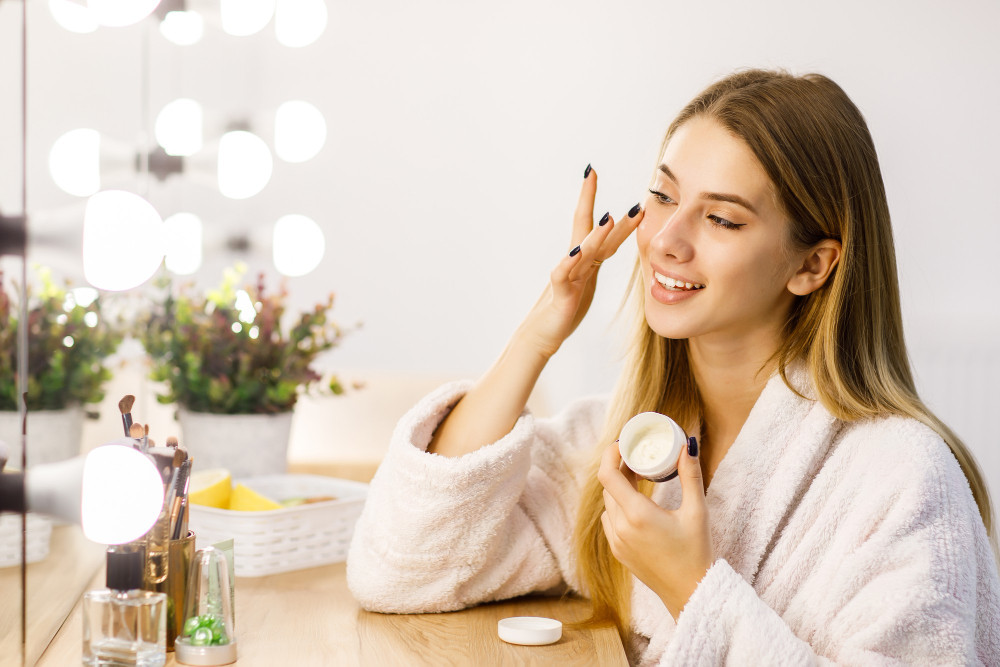Hydroquinone is a widely used ingredient in skin care products aimed at lightening skin. It is commonly recommended for treating hyperpigmentation issues such as dark spots, melasma, and stubborn acne scars.
While hydroquinone is considered effective, using products that contain this ingredient can come with certain risks. This article will explore the potential risks of hydroquinone and how to use it safely and effectively.
What is Hydroquinone?
Hydroquinone is a chemical compound known for its skin-lightening effects. It has been used in skincare for many years to treat hyperpigmentation. Hydroquinone works by inhibiting the enzyme tyrosinase, which is responsible for melanin production. By reducing melanin production, it helps lighten dark spots, scars, and overall skin tone.
Over-the-counter products typically contain a 2% concentration of hydroquinone, while stronger prescription formulas may contain up to 4%. However, despite its effectiveness, hydroquinone must be used carefully due to potential negative side effects.
Risks of Using Hydroquinone Products
Using hydroquinone in excessive amounts or without proper precautions can lead to several health risks, including:
Skin Irritation
One of the primary risks of using hydroquinone is irritation, particularly for individuals with sensitive skin. It may cause redness, itching, burning, or dryness at the application site. The risk of irritation is heightened if the hydroquinone concentration is too high.
Due to its potency, it’s recommended to start using hydroquinone gradually and to conduct a patch test before applying it to larger areas of the skin, such as the face.
Increased Sensitivity to Sunlight
Hydroquinone can make the skin more sensitive to sunlight, a condition known as photosensitivity. This increased sensitivity heightens the risk of sunburn.
Products containing hydroquinone should only be used at night. It’s also essential to apply a sunscreen with an SPF of at least 30 and avoid direct sunlight exposure while using hydroquinone.
Exogenous Ochronosis
Exogenous ochronosis is a rare but serious side effect of long-term hydroquinone use, especially when used in high concentrations. This condition causes a bluish or dark discoloration of the skin, which is often permanent and difficult to treat.
The discoloration usually appears in areas that are frequently exposed to hydroquinone, and it may be resistant to standard treatments.
Safe Tips for Using Hydroquinone Products
If you choose to use products that contain hydroquinone, here are several precautions to help minimize risks:
Consult a Doctor
Before incorporating hydroquinone into your skincare routine, it’s essential to consult a doctor. Follow their guidance on the correct dosage and frequency to ensure the product is used safely and effectively.
Additionally, regular check-ups with your doctor during the use of hydroquinone can help monitor your skin’s condition and ensure that the treatment remains safe.
Usage duration
Use hydroquinons only within the time period recommended by doctors. Excessive use or too long can increase the risk of side effects, such as exogenous phronosis.
How to Use
-
Use at Night: Hydroquinone should ideally be applied at night to reduce the risk of irritation and protect the skin from sun exposure.
-
Apply Sunscreen: Always apply sunscreen with an SPF of at least 30 before going outdoors. Sunscreen is crucial in protecting the skin from UV damage and helping maintain the efficacy of hydroquinone.
-
Avoid Direct Sunlight: Try to avoid direct sun exposure, particularly while using hydroquinone, as UV rays can trigger irritation and worsen side effects.
If you have further questions about hydroquinone-based products or need personalized advice, you can consult a healthcare professional through the Ai Care app, available on both the App Store and Play Store.
Want more health tips, remedies, and first aid advice? Click here!
- dr Hanifa Rahma
Amanda Barrell (2022). What to know about hydroquinone. Available from: https://www.medicalnewstoday.com/articles/hydroquinone
US FDA (2024). Skin Product Safety. Available from: https://www.fda.gov/consumers/skin-facts-what-you-need-know-about-skin-lightening-products/skin-product-safety
WebMD. Hydroquinone Cream - Uses, Side Effects, and More. Available from: https://www.webmd.com/drugs/2/drug-1347/hydroquinone-topical/details
Carrie Madormo, RN, MPH (2024). Why Is My Skin so Sensitive?. Available from: https://www.verywellhealth.com/what-is-sensitive-skin-5085561
Michelle Lazar, et all (2023). Exogenous Ochronosis: Characterizing a Rare Disorder in Skin of Color. Available from: https://www.mdpi.com/2077-0383/12/13/4341
Amanda M. Oakley, et all (2023). Photosensitivity. Available from: https://www.ncbi.nlm.nih.gov/books/NBK431072/


